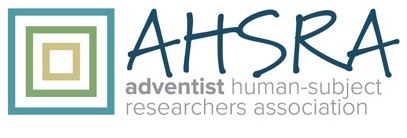Location
Session A
Event Website
http://www.ahsra.net/
Start Date
26-5-2023 12:00 PM
End Date
26-5-2023 12:15 PM
Description
In this session, the presenters will address the conference goal of exploring faith in thriving and its impacts on Adventism, education, and social issues, using Isaiah 1:17 as a guide. They will discuss how to teach students to “Learn to do good. Seek justice. Help the oppressed. Defend the cause of orphans. Fight for the rights of widows” by discussing specific class offerings, assignments and capstone projects intended to teach assessment and intervention skills, using a social justice perspective. To highlight these principles in action, a current student will discuss his coursework and thesis project informed by the intersection of these perspectives. Two of the presenters, Dr. Ponce-Rodas and Dr. Raveloharimisy, teach at Andrews University, where the mission is to transform students by educating them to “seek knowledge and affirm faith in order to change the world”. In their respective programs, psychology and community and international development, they have created courses that teach students how to conduct needs assessments, and then plan and execute change projects. Their students, both in undergraduate and Master’s programs, have worked with diverse groups, exploring topics such as mental health, economic development, gender-based violence, policy studies, health equity and environmental conservation both nationally and internationally. Together, they use the acronym A.C.T. (assess, connect and transform) to inform their coursework and teach their students new ways to “learn to do good”. The third presenter, Mkama Martine, noticed an increase in mental health concerns among young people in East African communities, but few resources for mental health, in his native language of Swahili. Informed by his coursework, he is creating a podcast “Njoo Tuongee juu ya afya ya akili” (Let’s talk about mental health) to provide basic information on what mental health is and discuss some common mental health conditions and treatment options. His goal is to normalize the topic and decrease stigma using a culturally informed approach. Mkama will also discuss how he applied for grant funding to carry out the project. Together, all three presenters plan an interactive session where participants are encouraged to ask questions and share resources. The goal is for participants to leave with tangible tools and ideas to take back to their own institutions where they can continue to do good, seek justice, and help the oppressed.
Included in
African Studies Commons, Community Psychology Commons, Development Studies Commons, Social Justice Commons
Learning how to A.C.T.: Opportunities to bridge education and social justice in academia
Session A
In this session, the presenters will address the conference goal of exploring faith in thriving and its impacts on Adventism, education, and social issues, using Isaiah 1:17 as a guide. They will discuss how to teach students to “Learn to do good. Seek justice. Help the oppressed. Defend the cause of orphans. Fight for the rights of widows” by discussing specific class offerings, assignments and capstone projects intended to teach assessment and intervention skills, using a social justice perspective. To highlight these principles in action, a current student will discuss his coursework and thesis project informed by the intersection of these perspectives. Two of the presenters, Dr. Ponce-Rodas and Dr. Raveloharimisy, teach at Andrews University, where the mission is to transform students by educating them to “seek knowledge and affirm faith in order to change the world”. In their respective programs, psychology and community and international development, they have created courses that teach students how to conduct needs assessments, and then plan and execute change projects. Their students, both in undergraduate and Master’s programs, have worked with diverse groups, exploring topics such as mental health, economic development, gender-based violence, policy studies, health equity and environmental conservation both nationally and internationally. Together, they use the acronym A.C.T. (assess, connect and transform) to inform their coursework and teach their students new ways to “learn to do good”. The third presenter, Mkama Martine, noticed an increase in mental health concerns among young people in East African communities, but few resources for mental health, in his native language of Swahili. Informed by his coursework, he is creating a podcast “Njoo Tuongee juu ya afya ya akili” (Let’s talk about mental health) to provide basic information on what mental health is and discuss some common mental health conditions and treatment options. His goal is to normalize the topic and decrease stigma using a culturally informed approach. Mkama will also discuss how he applied for grant funding to carry out the project. Together, all three presenters plan an interactive session where participants are encouraged to ask questions and share resources. The goal is for participants to leave with tangible tools and ideas to take back to their own institutions where they can continue to do good, seek justice, and help the oppressed.
https://digitalcommons.andrews.edu/ahsra/2023/presentations/20



